Discover Ghouls Next Door
Ghouls Next Door

320 Episodes
Reverse
28 Years Later is a wild, emotional ride exploring the complications of growing up in the midst of an apocalypse. Garland and Boyle return to the series, offering a vibrant and creative story where even amongst decades of death, the loss of a loved one still hits hard.Ghouls are joined by fellow podcaster, Erick Barragan of Cinepamina to discuss the highs, lows and very many choices made in this film.
Kpop Demon Hunters is a magical, vibrant, and gut punching animated film with catchy, thought provoking songs, beloved pop stars, and a lot of character growth. The musical has become a cultural phenomena, taking the charts and our hearts by storm. Ghouls explore the hunters' battle to not only seal the honmoon but the wounds of their trauma and the world’s around them too.
As quirky and charming as Dandadan is on the surface, full of bright color, relatable young protagonists navigating first love and their growing bodies, wacky alien creatures and exciting fight sequences, Dandadan has a brilliant knack for knocking its viewers off their feet with unjarring and upsetting backstories. Dandadan is not always an easy watch. While there is constant, excessive stripping down of the story’s young protagonists, if you’re able to stomach the initial uneasiness to grapple with the entire picture, you’ll find that creator Tatsu shares our concerns and fears. Ghouls discuss whether this show can be labeled as fan service or social commentary, cover the horrors of puberty, the power of friendship, and the unlikely hero, Momo.
Robert Kirkman's brutal and challenging comic, now adapted into a animated series, is an emotional exploration of legacy and the power of love. Debuting a special episode of *Boos Next Door*, hosts Isaiah Luck and Mike Levitt are joined by regular ghoul, June Bethea to discuss this complex show. Is there something beneath all that blood, gore, and trauma?
Seoul Station, a prequel to the beloved South Korean zombie horror film Train to Busan, tells a harrowing story of a zombie outbreak affecting a particularly vulnerable population: the homeless who've taken refuge in Seoul Station. Ghouls dive into this animated film, which features a very overt message that effectively spells out an unexpected story.
REC is a clever zombie film that follows people trapped in an apartment building. While trying to survive and get to the bottom of this quarantine, our protagonists fight to record the horrors around them. Joined by regular guest, Wi-Moto Nyoka (Dusky Projects), Ghouls discuss the unique villain, found footage horrors, and other faves.
Jeff Barnaby's Blood Quantum is a relentless, gory zombie film with an interesting twist. This film pulls no punches and through the anti-hero Lysol, we get to see that generational trauma, anger and resolve acted out in vengeance and graphic horror. Ghouls revisit one of their all time favorite horror films that turns the classic monster, zombie, into a harsh history lesson.
ZOM100 is a quirky show set during the zombie apocalypse that encourages viewers to take advantage of the time we have left. When our jobs under the oppressive systems of capitalism have already turned us into zombies, flesh eating monsters can feel like a fresh start and a good excuse to start living. Joined by the Boos Next Door (Mike Levitt & Isaiah Luck), Ghouls talk about the charmingly positive protagonist, Akira, and what our own bucket lists look like. When there's always a crisis anyway, we might as well live with more whimsy. No time like the present.
All of Us Are Dead is a compelling and emotionally charged TV series about a zombie outbreak at a high school in South Korea. The zombies cause chaos, but the true horrors, as always, are the many ways society fails these kids. Ghouls discuss the parts they love of the show, what they hope to see in a season 2, and how this show differs from other zombie media. No one is coming to save us, so we must protect each other.
Until Dawn is a wild time-loop slasher film inspired by the game. Ghouls invite their good friend and fellow gamer, June Bethea to talk about the ways the film exceeded their expectations and where it needed work. Perhaps this film could've been called literally anything else? We discuss the director's short film successes and our favorite parts about the game (QTEs, 1000s of script pages, and more!)
With delightfully absurd gore and entertaining banter, Clown in a Cornfield, is a fun summertime slasher. It offers a pleasant, somewhat unexpected twist, some truly bizarre characters and as always beloved in the slasher genre, teen angst.
Black Mirror’s Joan is Awful is a cautionary tale of our dangerous future in the shadow of hyper-surveillance, deep-fakes, and AI ownership. Joan is Awful explores the horrors of accepting shady terms and conditions. The Ghouls unpack the ways that AI and Data Mining are horrifying even now.
Common People is a particularly heartbreaking episode as it feels so much like our lives now. A sharp criticism of our healthcare system, subscription services, and capitalism, Common People pulls no punches despite being housed on the predatory subscription system, Netflix.
Companion is a seamlessly hilarious sci-fi romantic comedy that freshly examines power dynamics in artificial intelligence relationships. Ripe with refreshing and quick twists, the film leaves little room for questions and instead guides us through a bloody tale of deprogramming and toxic relationships.
Mickey 17 is an entertaining science fiction film that distills the fearful future of unchecked capitalism into a heartfelt, comedic romp. The Ghouls discuss what Mickey 17 gets right about Elon Musk’s Mars plan, our likely dystopian future after a second Trump Presidency, the reality of human cloning, and the horrors of climate change. How close are we to Bong Joon-ho’s dystopian space odyssey?
The Ghouls explore the revolutionary impact of Wicked in 2025. We dissect how Cynthia Erivo's Black Elphaba transforms the green-skinned witch's journey into a searing commentary on race, while simultaneously exposing the musical's chilling political prophecies. From "Defying Gravity" as a representation anthem to the Wizard's propaganda machine mirroring today's politics, we reveal why this story hits differently in 2025. When Animals lose their voice in Oz, marginalized communities recognize the playbook. When Elphaba is labeled "wicked" for speaking truth, activists see their reflection. Discover how one musical manages to challenge both Hollywood's casting traditions and America's political reality in a single, defiant gesture. Prepare to see "Wicked" through new eyes—where fantasy and reality collide in perfect, uncomfortable harmony.
Ryan Coogler’s Sinners feels like two movies in one and both are phenomenal pieces of media. At once a beautiful, heartbreaking, and emotional depiction of Jim Crow era America and a charming, hilarious, and horrific exploration of faith, culture, and folklore. Ghouls unpack their takeaways from a film ripe with meaning and impact diving into the intersectionality, intentionality, and fantastical nature of the film.
Severance has given us one of the most nuanced examinations of identity, consciousness, and labor rights in recent television. The Ghouls dissect Severance Season 2's brilliant dual commentary: the fight for innie personhood alongside corporate America's modern "Sunken Place" for Black professionals. From Helly's rebellion to Milchick's blackface paintings, Apple TV's workplace thriller mirrors our reality of eroding worker rights, modern company towns, and the dehumanizing effects of capitalism. "Did you think just because you gave us half a life, we wouldn't fight for it?"
From brilliantly explores Rebecca Solnit's disaster utopia concept, showing how communities respond to catastrophes with solidarity rather than chaos. The Ghouls explore how the trapped townspeople build meaningful connections despite relentless threats. From creates a true disaster utopia, showing people cooperating across backgrounds and sharing resources in Colony House's socialist community. We also explore the psychological toll of perpetual danger, comparing adaptive vs. maladaptive coping mechanisms through characters like Jade, Sara, and Elgin, revealing why isolation leads to corruption while community offers survival. Plus: connections to current social movements and recent protest victories! Perfect for horror fans, social psychology enthusiasts, and anyone seeking hope in difficult times.
The Ghouls Next Door are going LIVE to celebrate 300 spine-tingling, thought-provoking, and downright ghoulish episodes of horror and media literacy!Join Gabe and Kat for a night of chills, thrills, and unforgettable moments as we look back on 300 episodes of turning fear into fierce conversations. Expect live Q&A, fun games, exclusive behind-the-scenes stories, and so much more!


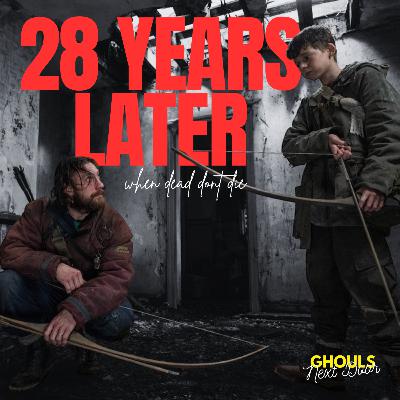
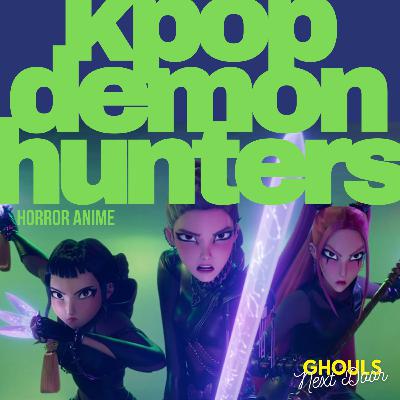
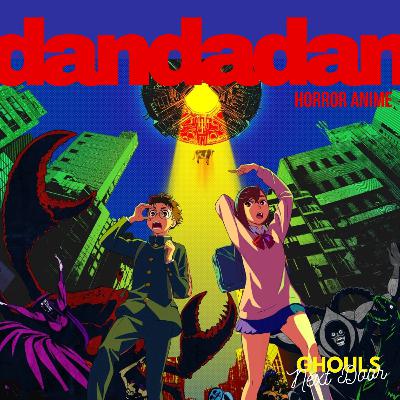
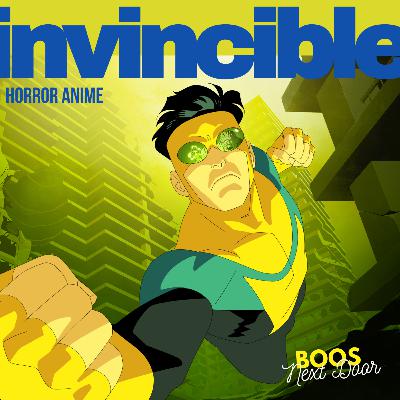
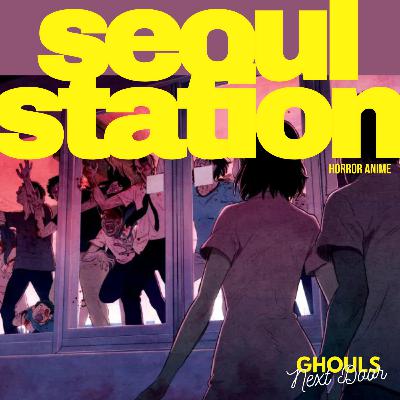
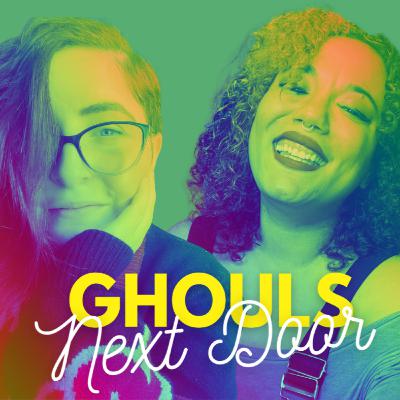
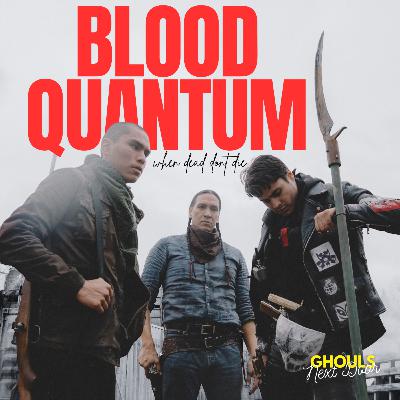

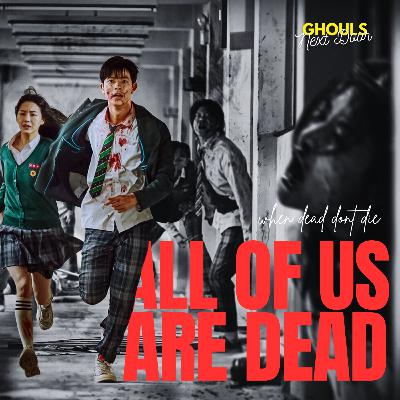
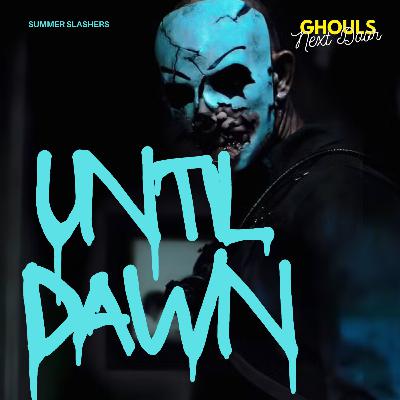
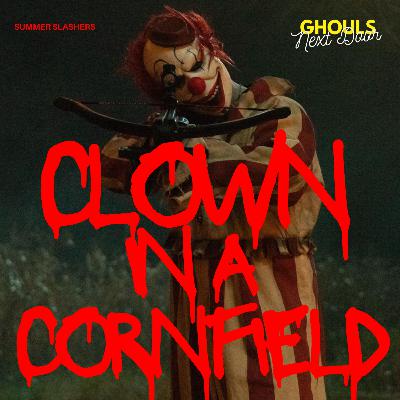
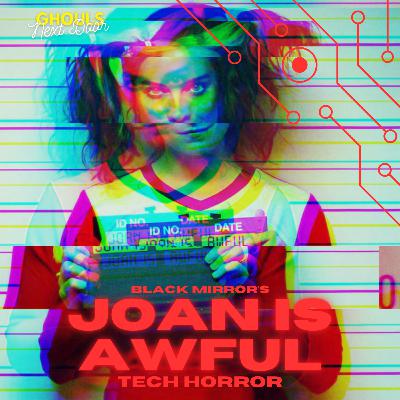
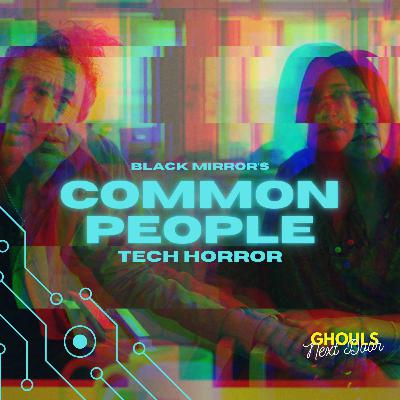
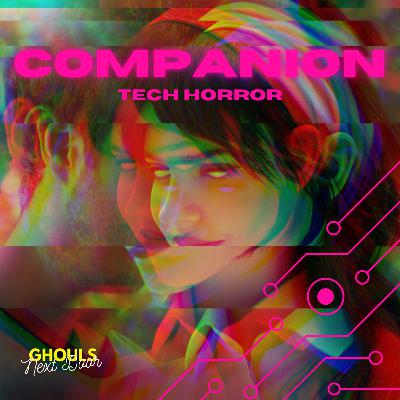
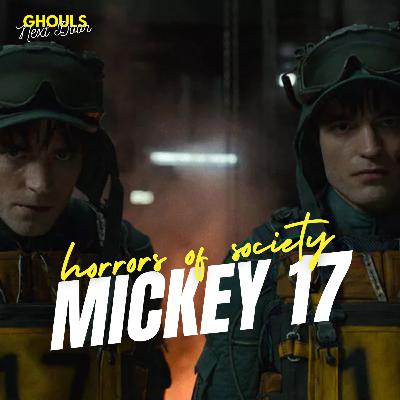
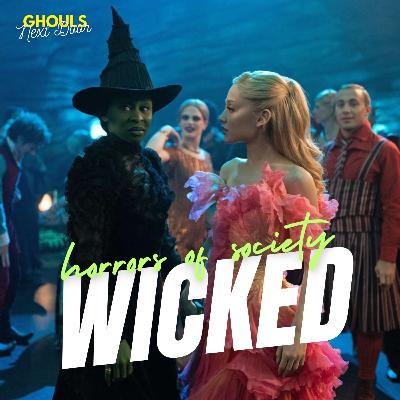
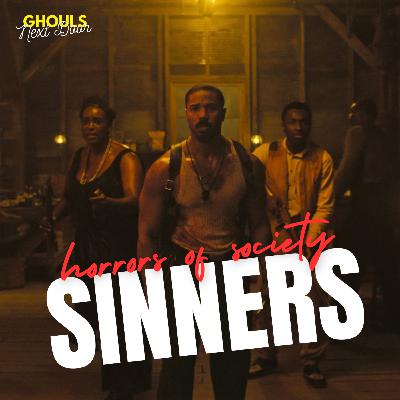
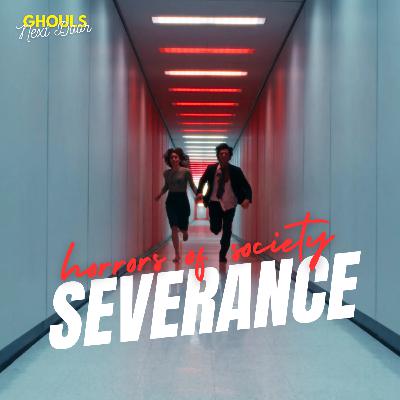
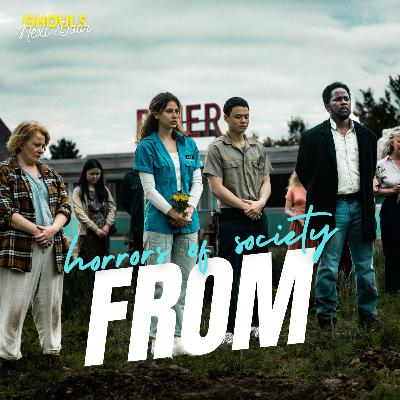




it's being a good parent to indulge a kid's spoiled demand? she doesn't need the cup.
witchcraft is not cool, bro 😬